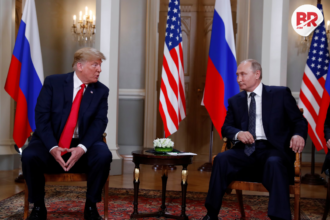
Several Indian electronics companies are concerned about not meeting their first-year production targets under the government’s Electronics Component Manufacturing Scheme (ECMS). The reason? A shortage of rare earth minerals caused by export restrictions from China.
What’s Happening?
China controls over 90% of the world’s rare earth mineral processing. From April 4 this year, it introduced strict export rules for seven rare earth elements and the magnets made from them. This has disrupted supply for industries like electronics, automobiles, and clean energy.

At least 10 Indian companies have informed the Ministry of Electronics and Information Technology (MeitY) that if the shortage continues for another six months, they might miss the production targets needed to get government incentives.
How Are Companies Coping?
An official said that while companies are concerned, the situation isn’t causing panic yet. In some cases, instead of making parts in India using rare earth materials, companies are choosing to directly import the finished parts.
Some firms are trying to find new suppliers or move toward alternatives that don’t use rare earths. But the timing is difficult—many are expanding their production for export under the new ECMS.
About the ECMS Scheme
The ECMS was launched in May with a budget of ₹22,919 crore. Its aim is to help build a strong local manufacturing setup for electronic parts such as:
- Multi-layer PCBs (Printed Circuit Boards)
- Lithium-ion cells
- Resistors and capacitors
- Display and camera modules
Applicants have shown strong interest in PCBs, especially multi-layer and high-density ones. However, India still lacks local production of some important raw materials, like copper-clad laminates. Chinese suppliers are now charging higher prices, blaming shipment issues.
Read more: Rare Earth Squeeze: Why 20,000 Jobs and India’s $10B Electronics Market Are at Risk
What’s the Government Doing?
The scheme runs from FY26 to FY32 and includes a one-year setup time. Many small and medium-sized companies (MSMEs) want quicker support to recover their investments. One PCB manufacturer said the government has informally promised to be flexible during the approval process.
Also, MeitY has decided to extend the ECMS application deadline beyond July 31, since many companies are still working on sourcing materials and forming partnerships.
In Parliament, Minister of State Jitin Prasada confirmed that China’s export restrictions are causing problems for the auto and electronics sectors. However, the government hasn’t received reports of increased costs or delays from major industrial areas like Maharashtra.
Looking Ahead
Industry leaders remain hopeful. They believe China won’t be able to continue the export ban for long, as it could harm its own companies and strain its trade relations globally.












